Fridge Leaking Repair: Refrigerator Leaking Water? Here’s What to Check First
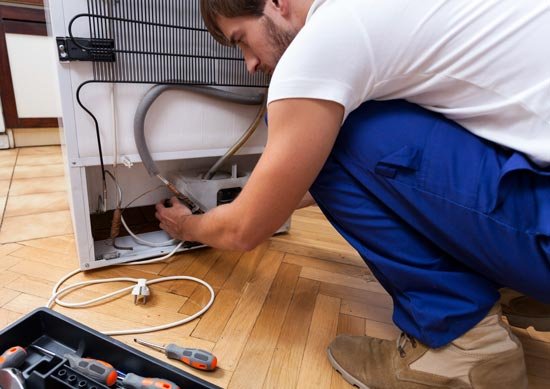
Refrigerator Leaking Water? Here’s What to Check First
Water leaking from your fridge can be frustrating and dangerous if left unchecked. But before you call a technician, you can handle basic diagnostics yourself. This guide helps you understand common causes and DIY checks, and to know when a fridge leaking repair professional is necessary.
Why Acting Fast on Fridge Leaks Matters
A minor drip can lead to bigger problems: mold growth, slippery floors, or damage to cabinets and flooring. Ignoring a fridge water leak may cost you far more in the long run. A timely fridge leaking repair can prevent costly damage and keep your appliance running efficiently.
Ensure Proper Drainage & Avoid a Clogged Drain
Many fridge leaks are due to a clogged drain or bottle beneath the refrigerator. Modern refrigerators have a drain pan and tube that collect condensation and defrost water. Over time, this tube can clog with food particles or ice, forcing water to overflow onto your kitchen floor instead of flowing to the drain tube.
- Unplug the fridge and locate the drain hole inside.
- To carefully remove the obstruction, use a pipe cleaner or a soft brush.
- Pour warm water down the drain to flush it out.
- If water continues pooling, it’s time to call a fridge leaking repair expert.
Inspect the Ice Maker for Leaks
If your fridge has an ice maker, an ice maker leak is another common culprit. Water supply lines can loosen or develop cracks, causing continuous drips. Ice dispensers inside the door may also leak if seals wear out. To check:
- Inspect the water line connecting to your fridge.
- Run the ice maker and observe for leaks around fittings.
- Examine the seals on the ice maker and freezer.
If you spot dripping or pooling during operation, it’s wise to schedule a fridge leaking repair service to avoid water damage or appliance failure.
Check the Water Filter and Cartridge
A cracked or incorrectly installed filter can cause leaks inside your refrigerator. These filters are often located in the back or inside the fridge. A loose filter or worn gasket can allow water to seep and create messes. Steps:
- Locate your water filter cartridge.
- Remove and inspect the filter for cracks or misalignment.
- Reinstall or replace as needed.
If leaks persist, you may need fridge leaking repair to replace faulty parts and ensure proper fit.
Examine the Defrost Drain & Pan
Melted ice flows into a pan underneath the refrigerator via a drain during automatic defrost cycles. Water may spill onto the floor if the clogged drain or pan is misplaced or damaged. Do this:
- Empty the defrost water pan and clean it.
- Check underneath the fridge to ensure proper alignment.
- Clear any debris trapped in the drain line.
Persistent leaks after cleaning suggest you need a professional fridge leaking repair technician.
Inspect Seals and Door Alignment
Poor door seals (gaskets) or misaligned doors can cause excess condensation inside the fridge. This water then collects and eventually overflows the drip tray or pans. Check seals:
- To make sure there are no ripped or deformed areas, examine each gasket.
- Clean around the seal with a mild detergent.
- To make sure there are no ripped or deformed areas, examine each gasket.Replace any damaged seals or leaks of cold air.
This kind of preventive work can avoid many issues and reduce future need for fridge leaking repair.
When to Call a Fridge Leaking Repair Pro
If you’ve checked the above steps and still have leaking, it’s time for professional help. Signs you may need a fridge leaking repair expert:
- Repeated leaks despite clearing the clogged drain
- Persistent drip from the ice maker leak area
- Cracked floor pan or subfloor water damage
- Electrical issues or strange noises during operation
- Water pooling under the sealed freezer or fridge door
Qualified technicians can locate hidden leaks, replace defective parts, and restore functionality fast and safely.
Why Professional Fridge Leaking Repair Is Worth It
Calling a pro offers these benefits:
- Accurate diagnosis for root causes
- Safe repair of water lines, filters, drains, or ice maker components
- Time savings & no guesswork
- Avoiding high‑voltage or refrigerant risks
- Warranty compliance for many appliance brands
A professional fridge leaking repair ensures lasting results, protecting your kitchen and extending fridge life.
DIY vs Professional Appliance Solution
Some homeowners feel confident handling minor leaks, but others prefer a full appliance solution with expert tools and parts. Doing-it-yourself may offer short-term fixes, but a fridge leaking repair ensures the problem is solved thoroughly and safely. If you’re uncertain about handling high‑voltage components or refrigerant systems let the professionals manage the repair for your safety.
How Universal Repair Services Handles Fridge Leaking Repair
At Universal Repair Services, we specialize in resolving leaks quickly and efficiently. Here’s how we deliver top‑notch fridge leaking repair:
- Comprehensive inspection including drain tubes, ice maker connections, gaskets, and pans
- Diagnosis of the leak’s root cause (clogged drain, filter or gasket defect, or ice maker issue)
- Safe part replacements (filters, seals, pan, or tubing)
- System testing and confirmation that no more leaks persist
- Final cleanup and homeowner instruction on prevention
- Our team ensures your appliance is fixed right the first time, minimizing disruption and future risk.
Preventing Future Fridge Leaks
Maintaining your fridge helps you avoid recurring problems and keeps your appliance warranty intact. Here’s how to reduce future issues:
- Replace water filters regularly
- Clean the drain hole during periodic maintenance
- Inspect gaskets for wear or damage quarterly
- Avoid overfilling ice trays or dispensers
- Schedule an annual review—even if no leaks are present
These steps help minimize ice maker leak chances, prevent clogged drain buildup, and maintain a solid appliance solution strategy.
-
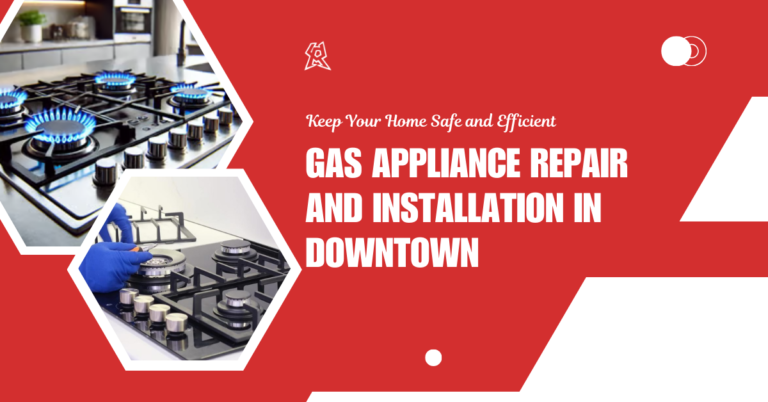 Gas Appliance Repair and Installation in Downtown (Dallas): Keep Your Home Safe and Efficient22 Jan 2026 Blog
Gas Appliance Repair and Installation in Downtown (Dallas): Keep Your Home Safe and Efficient22 Jan 2026 Blog -
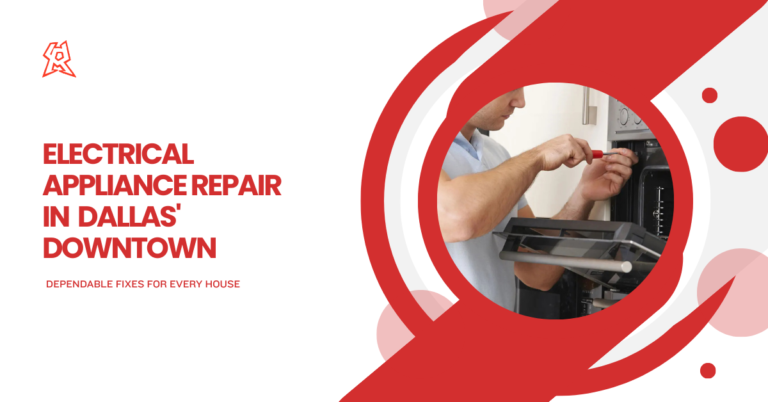 Reliable Electrical Appliance Repair in Dallas' Downtown: Dependable Fixes for Every House22 Jan 2026 Blog
Reliable Electrical Appliance Repair in Dallas' Downtown: Dependable Fixes for Every House22 Jan 2026 Blog -
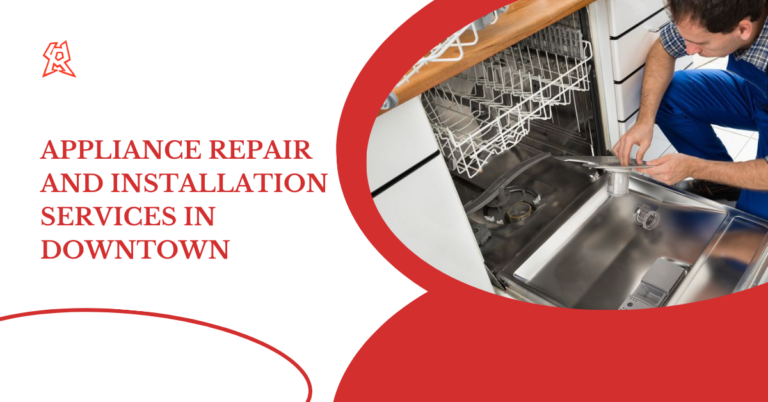 Appliance Repair and Installation Services in Downtown22 Jan 2026 Blog
Appliance Repair and Installation Services in Downtown22 Jan 2026 Blog -
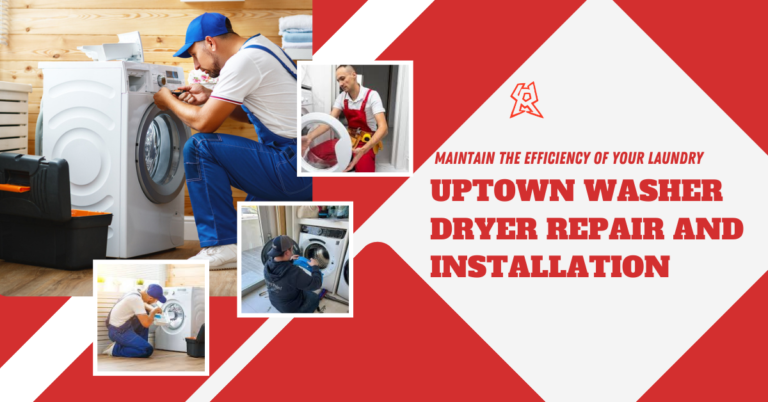 Uptown Washer Dryer Repair and Installation: Maintain the Efficiency of Your Laundry22 Jan 2026 Blog
Uptown Washer Dryer Repair and Installation: Maintain the Efficiency of Your Laundry22 Jan 2026 Blog
Recent posts
-
 Gas Appliance Repair and Installation in Downtown (Dallas): Keep Your Home Safe and Efficient
Gas Appliance Repair and Installation in Downtown (Dallas): Keep Your Home Safe and Efficient -
 Reliable Electrical Appliance Repair in Dallas' Downtown: Dependable Fixes for Every House
Reliable Electrical Appliance Repair in Dallas' Downtown: Dependable Fixes for Every House -
 Appliance Repair and Installation Services in Downtown
Appliance Repair and Installation Services in Downtown -
 Uptown Washer Dryer Repair and Installation: Maintain the Efficiency of Your Laundry
Uptown Washer Dryer Repair and Installation: Maintain the Efficiency of Your Laundry

